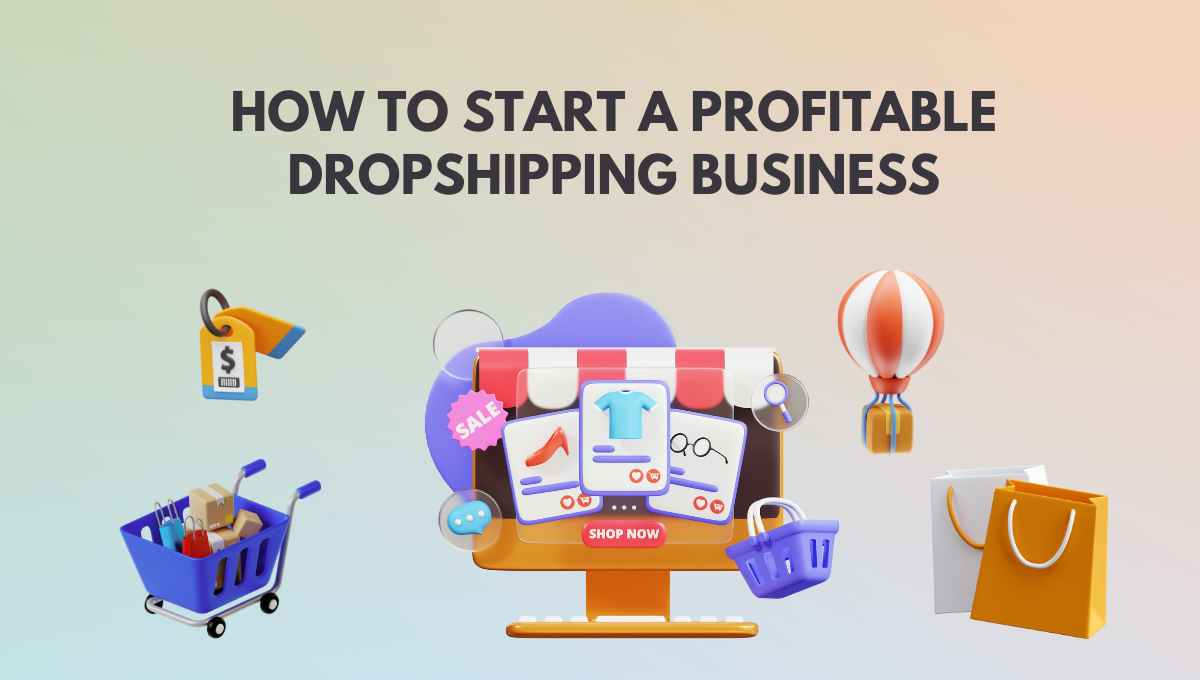Business
How to Start a Textile Business from Home: Tips for Small-Scale Entrepreneurs

Home-based textile business can be a rewarding and profitable outbreak, especially for wannabe entrepreneurs passionate about the fabric, fashion, and creativeness. Small-scale textile enterprises are getting into the limelight both in the local and global markets due to the rising demands for the sustainable and locally made textiles. This article will be looking at How to Start a Textile Business at Home which will walk you through important steps, strategies and tips that will enable you to start and maintain a successful textile start up at home. From the perspective of fabric manufacturing, clothing manufacture, or even designing textiles, home based startup provides flexibility as well as lesser startup costs hence, an appropriate beginning for novices.
Understanding the Textile Industry Landscape
Those people who want to begin a home-based textile business should know the structure and the magnitude of the textile industry. Belonging to the textile industry are all the processes, namely, yarn, fabric being produced, dyeing, printing and garments made. In this huge industry, there are many niches that you can venture in for instance organic cotton textiles, hand-made fabrics, customized clothing, ethnic wear. Being aware of the emerging trends, for example, sustainable textiles and environmentally-friendly dyeing will help you to find a business model that suits your passion, as well as demand of the market.
According to the textile business model, one needs to choose the right business model.
The first critical step that one needs to make when drawing a strategy for how to start a textile business from home is making the right decision in terms of business models. Examples of the common home-based textile ventures include printing of textile, fabric dyeing, production of clothes, embroidery services and textile designing. It is important that one chooses a niche depending on one’s abilities, available space, and budget. For instance, if you have a set of design abilities then it would be a profitable venture to begin at digital textile printing or handcrafted designs. In the other case, if you are more on production, you can think of acquiring raw materials and producing fabric based products such as cushions, scarves and even clothing.
Design of a home workspace for textile production industries.
Having a well-organized place where one is supposed to conduct the activities is essential while founding a textile business at home. Depending on the niche that you have selected, you will have to invest in sewing machines, fabric cutters, dyeing tools, or digital printers. The workspace should have proper lighting, ventilation and storage place for raw materials and finished products. Making a clean working space not only makes you efficient but also guarantees that your products are standard to the industry. Also, by ensuring that your supplies and equipment are organized, you will ensure that there is a seamless workflow process, which is essential in delivering the customer’s expectation within deadlines.
Acquiring Raw Materials and Equipment
Raw materials of good quality are what supports the textile business. To maintain good quality of products at all the times, establish good ties with dependable suppliers of fabric, dyes, threads, and other such necessary items. Local sources as well as online wholesale marketplaces are available as places you can source the materials from, provided that they are available and affordable. The right equipment also has to be invested in. For example, for instance, if you are manufacturing clothes, you will need industrial sewing machines, cutting tables, and finishing utilities. Properly budgeting for such items will ensure that you do not bite more than you can chew when it comes to your initial investment, setting a good platform on how your business grows.
Designing unique lines of textile and product line.
One of the best methods that will enable one to stand out in the competitive industry of textiles is through special and attractive designs. Design aesthetic will serve as your brand identity regardless of what you make, whether it is printed fabrics, embroidered pieces of work, or handmade clothes. Studying the basics of a textile design software or employing freelance designers can help you to come up with an exclusive product line. Another strategy to attract niche markets such as the boutique fashion brands or eco-conscious consumer is to sell customized or made-to-order textiles. If you pay attention to innovation and quality of your home-based business, you will win the loyal customer army in the long run.
Registrations of Your Business and Law Requirements.
Even when you are working from home, you should ensure you register your textile business as one of the ways of gaining credibility with your business and also for legal compliance. Depending on the place you are based at, you might require a business license, tax recognition number, and home-based business permit. In addition, it is necessary to know textile regulations, safety standards, and labels, especially if you are going to sell your products through the Internet or to the retail outlets. Appropriate registration does not only help protect your business legally but also allows you to have a business bank account, get funding, and transfer goodwill to the clients.
Textile Branding and Marketing of Your Business
Proper marketing and branding of the company is very important when it comes to finding out how to start a textile business at home. A clear brand identity including a business name, a logo, and a story makes your offer different from a competitor in a highly competitive market. Development of professional website and having strong presence on social media sites such as Instagram and Pinterest are some of the ways of attracting more audience. Posting exclusive behind-the-scenes content, customer testimonial, and product updates creates honesty and involvement. Other than digital marketing, attending local craft shows, trades, and having partnerships with boutiques are some of the marketing strategies that can grow your visibility and sales.
Selling Your Products on the Internet and in the Shops
Today, in the digital world, companies can hardly do without creating an online presence. Outlets like Etsy, Shopify, and Amazon Handmade have user-friendly options for selling textile to the global population. Designing your own e-commerce websites allows you to have more control on issues of branding, pricing, and customer experience. It is also promising to use such offline channels as local markets, exhibitions, and pop-up stores to communicate with the customers and collect feedback. Integrating the two sales channels, both online and the offline assures a diversity stream and an enhanced reach of the brands.
Managing Inventory and Finances Efficiently
Inventory as well as financial management become a pertinent issue when your textile business grows. Tracking of raw materials, work-in-progress, and finished goods are ways through which you will avoid stockouts or overproduction. It can be simplified with the help of the inventory management software or spreadsheets. It is equally important to plan finances – careful records of the costs, revenues and profits help you to track down your business performance and also estimate the possibility of developing your business further. By separating personal finances from business finances and by seeking the services of an accountant or using an accounting software is another step to take in order to improve on your financial stability.
Scaling Your Home-Based Textile Business
When your textile business gets momentum, you can then think of scaling up. Growth may include the hiring of more help, increasing the capacity of production, and adding new product lines. Outsourcing to get some job done such as embroidery, stitching, or packing can save your day when it comes to the increasing demand for your product or service without messing with the quality of your goods or services. Also, researching on partnerships with designers, wholesalers or retailers, in turn, can increase your business’ speed of growth. Scaling should, however, be targeted and with the attitude of keeping the product quality, consistency in branding and customer satisfaction.
Complimenting to trends and adjusting in to sustainability.
The textile industry is an ever-changing world of changes in fashions trends, technology and consumer’s preferences. You will need to keep up with the industry’s news, participate in trade shows, and keep an eye on the competitors to stay in line and innovate. Sustainability is emerging as a priority area as far as the production of textiles goes, with demand to produce earth-friendly cloth, fair source of supplies, and reduce waste, among other things. Implementing such principles in your business does not only have environmental but also adds up to gain on your brand image and win over the conscious consumers.
Conclusion: How to develop a successful home based textile company.
There is excitement and the better part of it is one will be earning in the course of the adventure. It is one of the most rewarding ventures as an entrepreneur at home. It is combining business at home, creativity, and flexibility. If you understand the business of textile, select a good niche for yourself, make your workspace efficient, and create a brand for yourself, you will have laid the groundwork for a money-spinner. The small-scale textile business can grow and flourish in the dynamic market with the use of dedication, innovation, and customer-centric approach. It does not matter whether you’re targeting the local or global market, an excellent way of starting your passion for textiles to your business success is by starting from home.
Business
How to Start Hotel Business

Starting a hotel is a big dream for many people in India. It offers a chance to welcome guests and create wonderful memories for them. If you are wondering how to start a hotel business, you are in the right place. This guide will give you a clear, step-by-step plan. We will cover everything from making a business plan to opening your doors to the first guest. With careful planning and hard work, you can turn your dream into a successful business.
Understanding the Indian Hotel Industry
The hotel industry in India is growing fast. More people are traveling for work and holidays. This means there is a big demand for good hotels. The market has many types of hotels, from simple guesthouses to fancy luxury resorts.
Before you start, it is important to know about the different kinds of hotels.
- Budget Hotels: These offer basic rooms at low prices. They are popular with backpackers and travelers who need a simple place to sleep.
- Boutique Hotels: These are smaller hotels, usually with 10 to 100 rooms. They have a unique style and offer a personal experience.
- Business Hotels: Located in city centers or near airports, these hotels serve business travelers. They have facilities like meeting rooms and fast internet.
- Resorts: These are often located in tourist spots like beaches or mountains. They offer many activities and are designed for relaxation and fun.
- Heritage Hotels: Old forts, palaces, and havelis are turned into hotels. They offer a unique cultural experience.
Think about which type of hotel you want to open. Your choice will affect your budget, location, and the kind of guests you attract.
How to Start a Hotel Business: Your Step-by-Step Plan
Building a hotel from scratch takes time and effort. Following a clear plan can make the process much smoother.
Step 1: Create a Solid Business Plan
A business plan is your roadmap to success. It helps you think through every part of your hotel business. It is also needed if you want to get a loan from a bank.
Your business plan should include:
- Executive Summary: A short overview of your entire plan.
- Company Description: Details about your hotel, its mission, and what makes it special.
- Market Analysis: Research on the hotel industry in your chosen area. Who are your competitors? What are they doing right and wrong?
- Services Offered: A list of all services you will provide, such as rooms, food, and other amenities.
- Management Plan: Who will run the hotel? What experience do they have?
- Marketing and Sales Strategy: How will you attract guests? This includes online marketing, advertising, and promotions.
- Financial Plan: This is a very important section. It should estimate your startup costs, daily operational costs, and how much money you expect to make.
Step 2: Arrange Your Finances
Starting a hotel requires a lot of money. You need to figure out your total startup cost. This includes the cost of land, construction, furniture, licenses, and initial marketing.
Here are some ways to get funding:
- Personal Savings: Using your own money shows you are serious about the business.
- Bank Loans: Many banks in India offer loans for new businesses. You will need a strong business plan to get approved.
- Investors: You can find partners or investors who are willing to put money into your business in return for a share of the profits.
- Government Schemes: The Indian government sometimes has schemes to support new businesses in the tourism sector. Check for programs like the Startup India initiative.
Step 3: Choose the Perfect Location
The location of your hotel is one of the most important factors for success. A good location can bring you a steady stream of guests.
Things to consider when choosing a location:
- Visibility and Accessibility: Is the location easy to find and reach by road, rail, or air?
- Target Audience: Choose a location that fits your target guests. For a business hotel, a spot near a corporate hub is good. For a resort, a scenic location is better.
- Competition: Look at other hotels nearby. Is there too much competition, or is there a gap in the market that you can fill?
- Local Attractions: Being near tourist spots, shopping areas, or restaurants can be a big advantage.
Step 4: Get All Necessary Licenses and Permits
Running a hotel in India requires many licenses. The rules can be complex, and it is important to follow them all to avoid legal trouble.
Some of the key licenses you will need are:
- Building Permit: Needed before you start construction.
- Hotel Project Approval: From the Ministry of Tourism.
- Business Registration: Registering your hotel as a company.
- FSSAI Food License: If you have a restaurant or serve food.
- Health/Trade License: From the local health department.
- Liquor License: If you plan to serve alcohol.
- Fire Safety Permit: To ensure your building is safe from fire hazards.
- GST Registration: For tax purposes.
This process can take time, so it is best to start early. You may want to hire a consultant to help you with the paperwork.
Step 5: Design, Construction, and Staffing
Once the legal work is in order, you can focus on building your hotel.
Designing Your Hotel
The design should match your hotel’s type and brand. A luxury hotel will have a different look and feel than a budget hotel. Think about the guest experience. The layout of the rooms, lobby, and other areas should be comfortable and practical.
Construction
Hire a reliable contractor to build your hotel. Make sure the construction follows all the building codes and safety standards.
Hiring Staff
Your staff will be the face of your hotel. Hire people who are friendly, helpful, and professional. You will need staff for different departments:
- Front Desk: To welcome guests and handle check-ins.
- Housekeeping: To keep the rooms and common areas clean.
- Kitchen and Restaurant: Chefs, waiters, and kitchen staff.
- Management: A hotel manager to oversee all operations.
- Maintenance: To fix any technical issues.
Provide good training to your staff so they can offer excellent service to your guests.
Step 6: Marketing and Grand Opening
Before you open, you need to create excitement and let people know about your new hotel.
- Create a Website: Your website is your online brochure. It should have beautiful photos, information about your rooms and services, and an easy-to-use booking system.
- Use Social Media: Create pages on platforms like Instagram and Facebook. Share updates, photos, and special offers.
- Partner with Online Travel Agencies (OTAs): List your hotel on sites like MakeMyTrip, Goibibo, and Booking.com. This will help you reach a wider audience.
- Plan a Grand Opening: Host an event for local media, travel agents, and potential guests to launch your hotel.
Conclusion: Building Your Dream Hotel
Knowing how to start a hotel business is the first step on an exciting journey. It requires a lot of planning, money, and hard work. By creating a strong business plan, securing your finances, choosing the right location, and getting all the necessary licenses, you set yourself up for success. Remember that great service is what makes guests return. Focus on creating a welcoming and comfortable experience, and your hotel business will thrive.
Frequently Asked Questions (FAQs)
1. How much money do I need to start a small hotel in India?
The cost can vary a lot based on location and size. A small budget hotel or guesthouse in a smaller city might cost between ₹50 lakhs and ₹2 crores. A larger or more upscale hotel in a major city can cost much more.
2. How long does it take to get all the hotel licenses in India?
The process can be long and complex. It can take anywhere from 6 months to over a year to get all the required licenses and permits, depending on the state and city.
3. Is it better to build a new hotel or buy an existing one?
Both options have pros and cons. Building a new hotel gives you full control over the design and brand, but it takes more time and money. Buying an existing hotel is faster, but you might need to spend money on renovations and rebranding.
4. How can I market my new hotel with a small budget?
Focus on digital marketing. Create a good website with a booking engine, use social media to connect with potential guests, and get listed on online travel agencies (OTAs). Encouraging happy guests to leave online reviews is also a powerful and free marketing tool.
5. What is the most important thing for a hotel’s success?
Excellent guest service is the most important factor. A clean room, a comfortable bed, and a good location are essential, but friendly and helpful staff who make guests feel valued will create loyal customers and positive reviews.
Business
vHow to Start a Trading Business from Home: A Complete Guide

Are you dreaming of leaving the 9-to-5 grind? Many people today are looking for ways to earn money without leaving their house. Learning how to start a trading business from home is one of the most popular options. It offers freedom, potential for high income, and the comfort of working in your pajamas. However, it is not a get-rich-quick scheme. It requires serious planning, the right tools, and a calm mind. This guide will walk you through every step you need to take to build a successful trading career from your living room.
Why Start a Trading Business from Home?
Before we dive into the “how,” let’s talk about the “why.” Trading from home has huge benefits.
- Low Cost: You do not need to rent an office or buy expensive furniture.
- Flexibility: You choose your own hours. You can trade in the morning or at night.
- Be Your Own Boss: You answer to no one but yourself.
But remember, with great freedom comes great responsibility. You must be disciplined.
Step 1: Create a Solid Business Plan
Every successful business needs a plan. Trading is no different. Do not just open an account and start pressing buttons. You need a roadmap.
Your plan should answer these questions:
- What will you trade? Will you trade stocks, forex (currency), or cryptocurrencies?
- How much money do you have? This is your capital. Never trade with money you need for rent or food.
- What are your goals? Are you looking for extra pocket money or a full-time salary?
Treating this like a real business is the first secret to success. Most beginners fail because they treat it like a casino.
Step 2: Choose Your Market
When learning how to start a trading business from home, picking the right market is crucial. Here are the most common options:
Stock Market
This involves buying shares of companies. It is great for beginners because there is a lot of information available. You can trade Indian stocks (NSE/BSE) or US stocks.
Forex Market
This is the foreign exchange market. You trade currencies like the US Dollar against the Euro. It is open 24 hours a day, five days a week. This is good if you want flexible hours.
Commodities
This involves trading physical goods like gold, silver, or oil. Prices here can move very fast.
Crypto
This is digital money like Bitcoin. It is very risky but can offer high rewards.
Pro Tip: Do not try to master everything at once. Pick one market and learn it inside out.
Step 3: Get the Right Equipment
You do not need a fancy setup with six monitors like you see in movies. However, you do need reliable tools.
- A Good Computer: A laptop or desktop with decent speed is enough.
- Fast Internet: This is non-negotiable. A slow connection can cost you money if it cuts out during a trade.
- Backup Power: In case the electricity goes out, you need a UPS or a laptop with a good battery.
Step 4: Open a Demat and Trading Account
To trade, you need a broker. A broker is the middleman connecting you to the market. In India, for example, you need a Demat account to hold shares and a trading account to buy or sell them.
Look for a broker that offers:
- Low Fees: High brokerage charges will eat your profits.
- Good Support: You need someone to help if the system crashes.
- Easy Platform: The software should be easy to understand.
Important: Always choose a regulated broker. This keeps your money safe.
Step 5: Educate Yourself (The E-E-A-T Way)
Expertise is key. You cannot guess your way to profit. You must learn technical analysis and fundamental analysis.
- Technical Analysis: This means reading charts. You look at past price movements to guess where the price will go next. Learn about “candlesticks,” “support and resistance,” and “moving averages.”
- Fundamental Analysis: This involves looking at the real value of what you are trading. For stocks, this means reading company reports. For forex, it means following news about a country’s economy.
There are many free resources online. YouTube and trading blogs are great places to start.
Step 6: Develop a Trading Strategy
A strategy is a set of rules. It tells you exactly when to buy and when to sell. Without rules, you are gambling.
Here is a simple example of a rule:
“I will only buy a stock if the price goes above the 50-day average.”
Test Your Strategy: Before using real money, use a “demo account.” This lets you trade with fake money. Do this for at least one month. If you can make money in the demo account, you are ready for the real thing.
Step 7: Managing Risk and Money
This is the most important section in this article on how to start a trading business from home.
You will lose money on some trades. That is a fact. Even the best traders lose. The goal is to make sure your wins are bigger than your losses.
- The 1 Percent Rule: Never risk more than 1 or 2 percent of your total money on a single trade. If you have 100,000 rupees, do not risk losing more than 1,000 or 2,000 on one trade.
- Use Stop-Loss Orders: A stop-loss is an automatic command to sell if the price drops too much. It prevents a small loss from becoming a disaster.
Step 8: The Legal Stuff
Since you are running a business, you must follow the law.
- Register Your Business: Depending on where you live, you might need to register as a sole proprietorship.
- Pay Your Taxes: Trading income is taxable. Keep a record of every single trade. At the end of the year, you will need this for your tax return. Hiring a chartered accountant is a smart move.
Step 9: Psychology and Mindset
Trading is 20 percent skill and 80 percent psychology. It can be very stressful.
- Control Your Emotions: Do not trade when you are angry or sad.
- Avoid Revenge Trading: If you lose money, do not try to “win it back” immediately. Take a break.
- Stay Patient: You will not become a millionaire overnight. Slow and steady wins the race.
Common Mistakes to Avoid
When figuring out how to start a trading business from home, watch out for these traps:
- Overtrading: Buying and selling too much just because you are bored.
- Following Tips: Do not buy something just because a friend or a TV expert said so. Do your own research.
- Ignoring Fees: Brokerage fees, taxes, and data charges add up. Keep track of them.
Conclusion
Building a trading career is an exciting journey. It allows you to take control of your financial future. By following this guide on how to start a trading business from home, you are setting yourself up for success. Remember to start small, protect your capital, and never stop learning. Treat it with the respect of a serious profession, and the markets can reward you handsomely. Stay disciplined, stay patient, and happy trading!
FAQs
1. How much money do I need to start trading from home?
You can start with a very small amount, sometimes as low as $100 or 5,000 rupees. However, to make a living, you will eventually need a larger capital base. It is best to start small and grow your account slowly.
2. Can I trade on my phone?
Yes, most brokers have mobile apps. However, serious analysis is hard to do on a small screen. It is better to use a computer for analysis and use your phone only to check trades or close them in an emergency.
3. Is trading basically gambling?
No, not if you do it right. Gambling relies on luck. Trading relies on probability and analysis. If you trade without a plan or strategy, then it becomes gambling.
4. How long does it take to become profitable?
It varies for everyone. Some people learn in six months, while others take years. On average, expect to spend at least one year learning and practicing before you see consistent profits.
5. Do I need a finance degree to trade?
No. Many successful traders have no formal background in finance. You need to be willing to learn, have good discipline, and be able to control your emotions.
Business
How to Start a Dropshipping Business in India

Starting an online business in India is an exciting goal for many. If you are looking for a smart way to enter the world of e-commerce without a large investment, this guide on how to start a dropshipping business in India is for you. Dropshipping lets you sell products to customers without ever holding the inventory yourself. Instead, when you sell a product, you buy it from a third party, and they ship it directly to the customer. This guide will walk you through every step, making the process clear and simple.
Understanding Dropshipping in the Indian Context
Dropshipping is a powerful business model that is growing fast in India. The e-commerce market is booming, and more people are shopping online than ever before. This creates a huge opportunity for new entrepreneurs.
With dropshipping, you are the middleman. Your main job is to market and sell products. You do not have to worry about storing products, packing boxes, or shipping orders. This lowers your risk and startup costs.
Why Dropshipping is a Good Choice for India
- Low Startup Cost: You do not need to buy products in bulk. You only purchase a product after you have made a sale. This means you can start with very little money.
- Flexibility: You can run your business from anywhere with an internet connection. This makes it perfect for students, homemakers, or anyone looking for a side business.
- Wide Range of Products: You can sell almost anything. From fashion and electronics to home goods and beauty products, the choices are endless. You can test different products to see what sells best.
- Growing Market: India has one of the fastest-growing online retail markets in the world. More Indians are getting comfortable with online payments and shopping, creating a massive customer base for your business.
Your Step-by-Step Guide: How to Start a Dropshipping Business in India
Let’s break down the process into simple, actionable steps. Following this plan will help you launch your dropshipping store successfully.
Step 1: Find Your Niche and Products
Choosing the right niche is the most important step. A niche is a specific segment of the market you want to target. Instead of trying to sell everything to everyone, focus on a group of products for a specific audience.
How to Find a Good Niche:
- Follow Your Passion: It is easier to sell products you are interested in. Your passion will show in your marketing.
- Solve a Problem: Look for products that solve a common problem for people. These products often sell well.
- Check for Trends: Use tools like Google Trends to see what products are becoming popular in India. Look for steady growth, not just a quick fad.
- Analyze Profitability: The products you choose should have a good profit margin. This is the difference between what you pay the supplier and what you sell it for. Aim for products that you can sell for at least two to three times the supplier’s price.
Examples of Good Niches in India:
- Eco-friendly home products
- Fitness and yoga accessories
- Pet supplies
- Smart home gadgets
- Personalized gifts
Step 2: Find Reliable Indian Suppliers
Your supplier is your business partner. A good supplier will provide quality products and ship them on time. A bad supplier can ruin your store’s reputation.
Where to Find Suppliers:
- Indian Dropshipping Platforms: Several platforms connect you with local suppliers. Websites like GlowRoad, Meesho, and Shop101 are popular choices. They handle product sourcing and shipping.
- Wholesale Directories: You can search online for wholesalers in India that are willing to dropship.
- Direct Contact: If you find a product you like, you can contact the manufacturer directly and ask if they offer dropshipping.
What to Look for in a Supplier:
- Good Quality Products: Always order samples before you start selling. Check the product quality yourself.
- Fast Shipping: Ask about their shipping times within India. Customers expect fast delivery.
- Good Communication: Your supplier should be easy to contact and responsive to your questions.
- Fair Pricing: Compare prices from different suppliers to ensure you are getting a good deal.
Step 3: Set Up Your Business and Legal Structure
To run a business in India, you need to handle the legal side. This makes your business official and builds trust with customers.
Key Legal Requirements:
- Choose a Business Structure: You can start as a Sole Proprietorship, which is the easiest. As you grow, you might consider a One Person Company (OPC) or a Private Limited Company.
- Get a GST Registration: If your annual turnover is expected to be more than ₹40 lakhs (or ₹20 lakhs in some states), you must register for the Goods and Services Tax (GST). Since you are in e-commerce, it is best to get GST registration from the start.
- Open a Business Bank Account: Keep your business finances separate from your personal finances. Open a current account in your business’s name.
Step 4: Build Your Online Store
Your online store is your digital storefront. It needs to look professional and be easy for customers to use.
Popular E-commerce Platforms:
- Shopify: This is the most popular platform for dropshipping worldwide. It is very user-friendly. Shopify offers many apps that can connect you directly with suppliers and automate your business.
- WooCommerce: If you are comfortable with WordPress, WooCommerce is a great, flexible option. It is a free plugin, but you will need to pay for web hosting.
- Dukaan or Instamojo: These are Indian platforms designed for small businesses. They are simple to set up and often include payment gateway integration.
Tips for a Great Store:
- Use a Clean Design: Your website should be easy to navigate. Use high-quality product photos and write clear product descriptions.
- Mobile-Friendly: Most people in India shop on their phones. Make sure your store looks great on a mobile screen.
- Secure Payment Gateway: Integrate a trusted payment gateway like Razorpay, PayU, or Instamojo. This allows customers to pay securely using credit cards, debit cards, UPI, and net banking.
Step 5: Market Your Dropshipping Store
Once your store is live, you need to bring customers to it. Marketing is how you will make sales.
Effective Marketing Strategies for India:
- Social Media Marketing: Platforms like Instagram and Facebook are very powerful. Create a business page, post engaging content, and use paid ads to target potential customers. Influencer marketing can also be very effective.
- Content Marketing: Start a blog or a YouTube channel related to your niche. Provide helpful information to attract your target audience. For example, if you sell kitchen gadgets, you could share recipes.
- Search Engine Optimization (SEO): Optimize your store so it appears in Google search results. Use relevant keywords in your product titles and descriptions.
- WhatsApp Marketing: Use WhatsApp Business to communicate with customers, send order updates, and promote new products.
Step 6: Manage Orders and Customer Service
Excellent customer service will set you apart from the competition.
The Order Process:
- A customer places an order on your website.
- You receive the payment.
- You forward the order and customer details to your supplier.
- You pay the supplier their wholesale price.
- The supplier ships the product directly to your customer.
Customer Service Best Practices:
- Be Transparent: Be clear about shipping times on your product pages.
- Communicate Proactively: Send order confirmation and shipping update emails.
- Handle Returns Gracefully: Have a clear return policy. If a customer is unhappy, handle their complaint professionally. A happy customer may come back to shop again.
Conclusion: Your Journey on How to Start a Dropshipping Business in India
Starting a dropshipping business in India is a fantastic way to become an entrepreneur with minimal risk. The key to success is careful planning and execution. By finding the right niche, choosing reliable suppliers, building a professional store, and marketing effectively, you can build a profitable online business. Remember, learning how to start a dropshipping business in India is just the beginning. The real work is in growing it day by day. Stay focused, adapt to changes, and always put your customers first.
Frequently Asked Questions (FAQs)
1. Is dropshipping legal and profitable in India?
Yes, dropshipping is completely legal in India. It is a form of retail. It can be very profitable if you choose the right products, manage your costs, and market your store effectively.
2. How much money do I need to start dropshipping in India?
You can start with a relatively small budget. Your main costs will be for your e-commerce platform (like a Shopify subscription), a domain name, and a small marketing budget. You could start with as little as ₹5,000 to ₹10,000.
3. Do I need a GST number to start dropshipping?
It is highly recommended to get a GST number. As an e-commerce seller, you are required to collect and pay GST. Registering for GST from the start makes your business compliant and builds trust.
4. Can I dropship products from China to India?
Yes, you can. However, shipping from China can lead to long delivery times and potential customs issues. For better customer satisfaction, it is often better to work with local Indian suppliers who can offer faster shipping.
5. How do I handle customer returns in a dropshipping business?
You need to have a clear return policy on your website. Usually, you will ask the customer to ship the product back to your supplier. Coordinate with your supplier to understand their return process and refund policy before you start selling.
-

 BLOG1 year ago
BLOG1 year agoUnlocking Opportunities: Top Small Business Ideas in Hyderabad
-

 BLOG1 year ago
BLOG1 year agoTop Automotivе Businеss Idеas: Explorin’ Profitablе Vеnturеs in thе Auto Industry
-

 Business1 year ago
Business1 year agoHеartfеlt Bеst Wishеs for Nеw Businеssеs: Encouragеmеnt & Succеss Tips
-

 BLOG7 months ago
BLOG7 months agoWhat is Traceloans.com Student Loans?
-

 BLOG1 year ago
BLOG1 year agoMedicine Wholesale Business: An In-Depth Overview
-
BLOG1 year ago
Business Ideas in Tamilnadu: Profitable Options for Entrepreneurs
-

 BLOG1 year ago
BLOG1 year agoPart Time Business Ideas in Tamil You Can Start from Home
-

 BLOG2 years ago
BLOG2 years agoNew Business Ideas in India: Exploring Prospects in a Vibrant Economy
